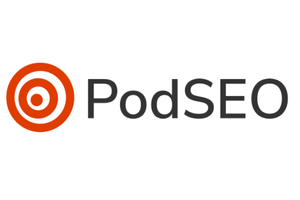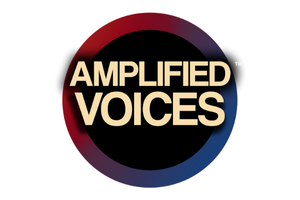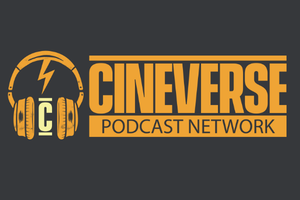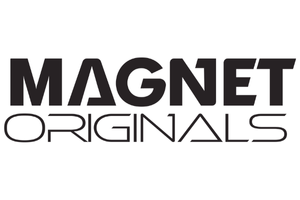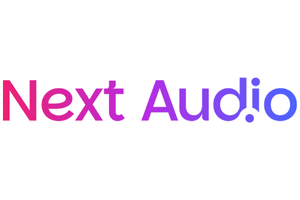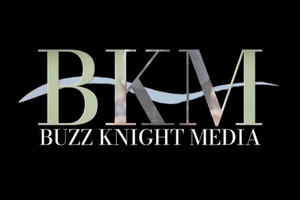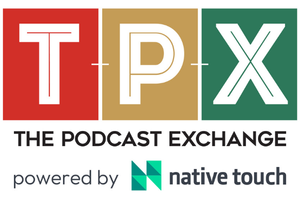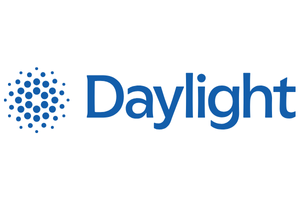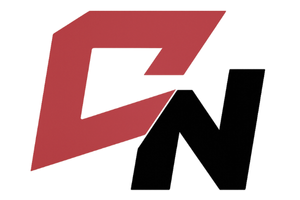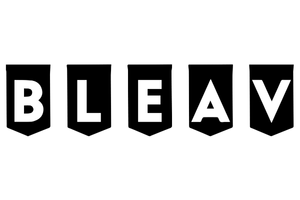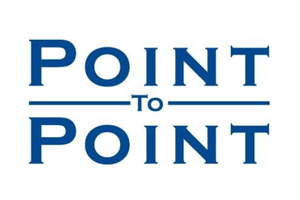This Week in the Business of Podcasting
Happy Hall-darn, just missed it. October is behind us, what a whirlwind! Ignore the fact I’ve watched 31 horror movies since September 15th for Hooptober, that totally didn’t make the month more frantic at all. Now that the scares are behind us, time to look forward to the end of the year. Let’s get into some autumnal news.

Transparency. Performance. Automation.
Better Podcast Marketing and The Curiosity Gap by Tom Webster
This Wednesday, Tom Webster shared his secret philosophy to great podcast recommendations: curiosity is a better driver of interest in media than a plain label. The example given is how one might pitch the Scottish electronica duo Boards of Canada. One could simply say the music is “lo-fi chill electronic” and be done with it, but even just explaining the band title (music inspired by the uniquely low fidelity synth found in school PSA films produced and widely distributed by the Film Board of Canada) gives both context and breeds curiosity. Webster gives examples of how to recommend podcasts such as Maintenance Phase and Twenty Thousand Hertz. A quote from Webster:
“My ‘testimonials’ aren’t describing the show as much as they are highlighting a curiosity gap. Don’t you wish you knew? Don’t you wish you had this? Don’t you wish you could go back to that feeling? Often, this kind of description can sound arrogant or self-aggrandizing as marketing if you say it, but it can really sing as a testimonial. Maybe you can’t say it yourself, but if you can highlight it when someone else says it, this is when the real magic can happen”.
People naturally want to fill in information gaps, which Webster proposes can further apply to feelings. Boards of Canada evoke a nostalgia for a version of being a kid in the 1970s and 1980s not captured by pop culture. Selling podcasts to people based on the feeling and tone they create would land more audience members who would listen to podcasts if they had a good reason to try.
Brands Catching Up to New FTC Influencer Legislation
Last Wednesday from The Drum editor-in-chief Gordon Young: As of October 14th, new legislation from the FTC regarding fake endorsements and undisclosed influencer partnerships has gone into effect. The new rules focusing on endorsements and partnerships carries a fine up to $43,792 per violation.
SwayID’s Kaeya Majmundar says the truly surprising aspect of the new legislation is the speed at which it was passed, with many brands unaware of concepts that used to be guidelines now carrying a fine. She compares the potential upcoming flood of influencer marketing infractions to brands encountering ADA lawsuits over website accessibility. The new FTC crackdown aims to stem the tide of fake reviews, undisclosed paid endorsements, and misleading testimonials.
Shoppers Started Prepping for Holidays Earlier This Year
This Tuesday from Allison Smith at Digiday: While the July and October editions of Amazon’s biannual Prime Day event posted positive numbers for the company, their success does not naturally indicate a holly jolly shopping season ahead. A quote from the article:
“The National Retail Federation, the country’s largest retail trade group, said earlier this month that it expects holiday sales in the U.S. to grow between 2.5% to 3.5% from November to December, a slower pace than last year when sales rose 5.3%. This month, Deloitte also forecast that shoppers plan to spend 3% less on holiday gifts compared to a year ago.”
Only 24% of consumers surveyed by Gartner intend on waiting to start their holiday shopping until November or December. This is also compounded by a busy year full of attention-occupying events, from the Olympics to the upcoming U.S. election. A quote from Amazon’s CFO Brian Olsavsky:
“There’s a lot of events that are occupying people’s attention right now from political conventions to the election itself to the Olympics. No matter what you’re selling or providing, customers only have so much attention.”
Podcasting could be a powerful tool in cutting through that noise and getting brand deals directly to consumers thanks to leaned-in audiences and strong trust in host endorsements.
Survey on Audience Feelings on Brands and Politics, Social Issues
This Monday from Erika Wheless writing for AdAge: A new report from communications agency M Booth surveyed 3,015 Americans aged 18-55, fielded by research company Savanta over late August and early September. The survey focused on respondents’ feelings towards brands that partake in politically-charged content, be it directly or indirectly via working with an influencer who also posts political content separately.
72% of respondents believe if a company or brand works with an influencer who’s vocal about their politics, the company is endorsing that point of view. 75% responded positively to the premise ‘brands do not need to play in politics.’ A quote from M Booth CCO AG Bevilaqua:
“We are not seeing the market back away from influencers. We recommend that brands look at their beliefs first. More activist brands will have a different risk tolerance. The vanilla middle is not appealing to consumers, so either do not comment if you cannot back it up, or take a stand and do not retreat.”
Just over half of respondents believe companies should take a stance on moral issues, with 30% further saying brands should take a stance regardless of if the stance agrees with the respondent’s views. That said, 43% say virtue signaling (professing a stance to look good without committing prior effort to the cause) reflects poorly on brands. Despite social media campaigns organized by activist Robby Starbuck meant to pressure brands into reversing DEI initiatives (to some success with John Deere, Toyota, Molson Coors, and others), the M Booth study finds DEI still ranks sixth in important factors that determine what impact a brand has on culture, according to respondents.
Quick Hits
While they may not be top story material, the articles below from this week are definitely worth your time:
- The Podcast Glossary hosted by Sounds Profitable has been translated into Spanish by Genuina Media.
- How Emotion AI Will Transform Podcast Advertising by Alberto Betella A brief overview of the history of parasocial relationships, as well as how voice clones could be upgraded with Emotional AI to deliver more effective host-read run-of-network ads.
- Podcast Advertising Transcends Audio: Podcast-first Omnichannel Campaigns Drive 84% Listener Action, Acast Study Finds A new study from Acast looks at the listening habits of podcast consumers and how to reach them.
- Beauty brands could use a sonic glow-up: report by Alyssa Meyers A new report from sonic branding agency amp looks at the state and future potential of sonic branding for beauty companies.






